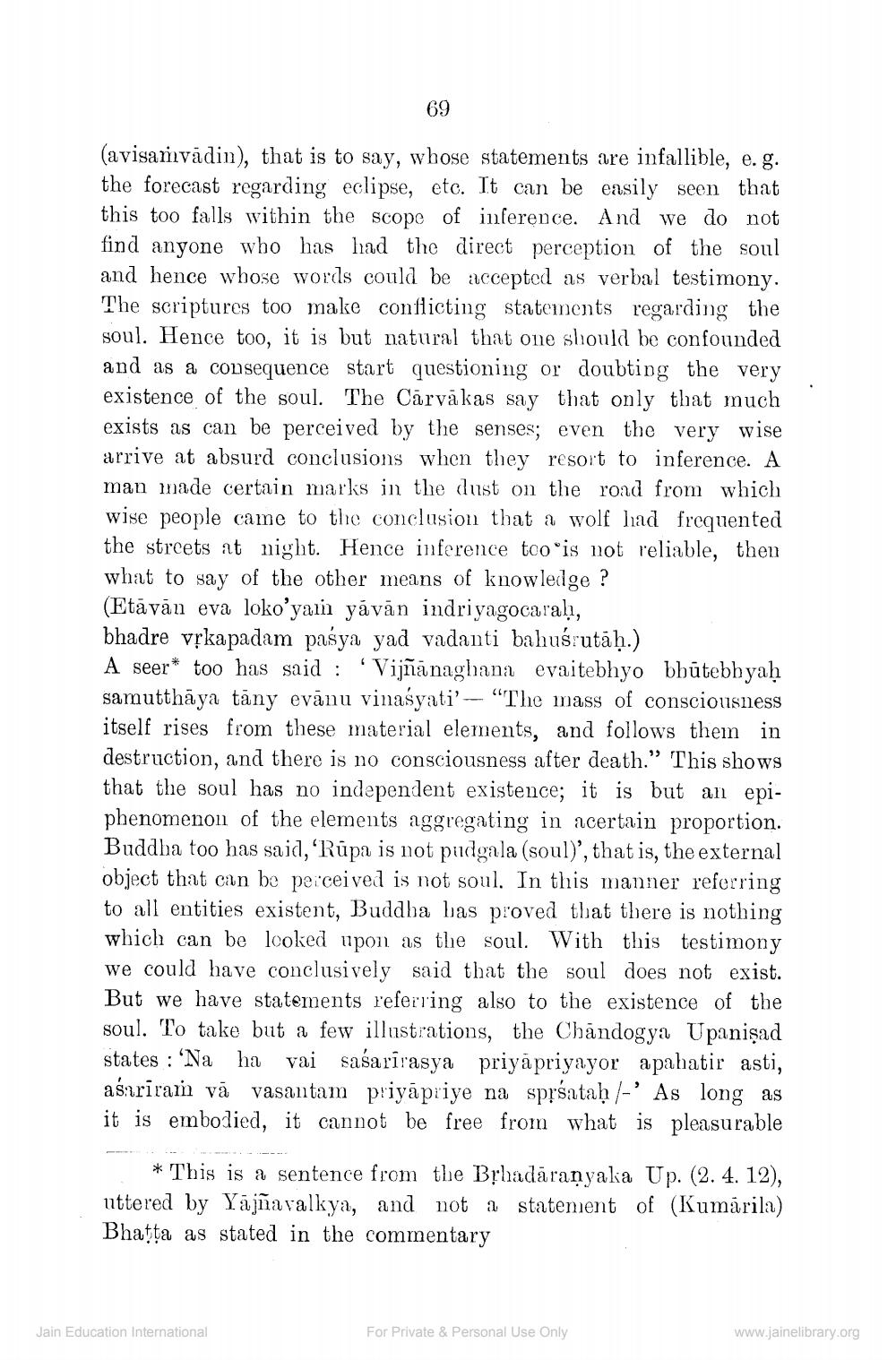________________
69
(avisamvādin), that is to say, whose statements are infallible, e.g. the forecast regarding eclipse, etc. It can be easily seen that this too falls within the scope of inference. And we do not find anyone who has had the direct perception of the soul and hence whose words could be accepted as verbal testimony. The scriptures too make conflicting statements regarding the soul. Hence too, it is but natural that one should be confounded and as a consequence start questioning or doubting the very existence of the soul. The Cārvākas say that only that much exists as can be perceived by the senses; even the very wise arrive at absurd conclusions when they resort to inference. A man made certain marks in the dust on the road from which wise people came to the conclusion that a wolf liad frequented the streets at night. Hence inference too is not reliable, then what to say of the other means of knowledge ? (Etāvān eva loko’yam yāvān indriyagocaralı, bhadre vška padam paśya yad vadanti bahuśrutāḥ.) A seer* too has said : Vijñā naghana evaitebhyo bhūtebhyah samutthaya tāny evānu vinaśyati'-- "The mass of consciousness itself rises from these material elements, and follows them in destruction, and there is no consciousness after death." This shows that the soul has no independent existence; it is but an epiphenomenon of the elements aggregating in acertain proportion. Buddha too has said, 'Rūpa is not pudgala (soul)', that is, the external object that can be perceived is not soul. In this manner referring to all entities existent, Buddha bas proved that there is nothing which can be looked upon as the soul. With this testimony we could have conclusively said that the soul does not exist. But we have statements referring also to the existence of the soul. To take but a few illustrations, the Chandogya Upanisad states : 'Na ha vai sasarīrasya priya priyayor a pahatir asti, aśarīram vā vasantam priyāpriye na sprśataḥ|- As long as it is embodied, it cannot be free from what is pleasurable
* This is a sentence from the Brhadaranyaka Up. (2. 4. 12), uttered by Yājsavalkya, and not a statement of (Kumärila) Bhatta as stated in the commentary
Jain Education International
For Private & Personal Use Only
www.jainelibrary.org




